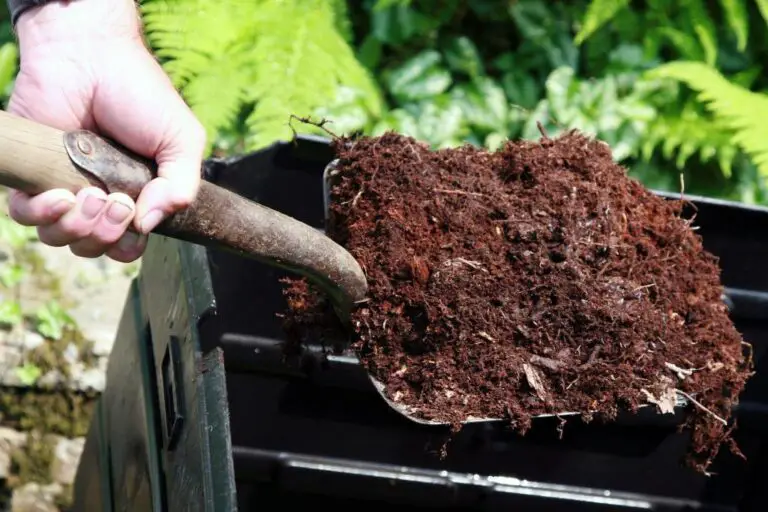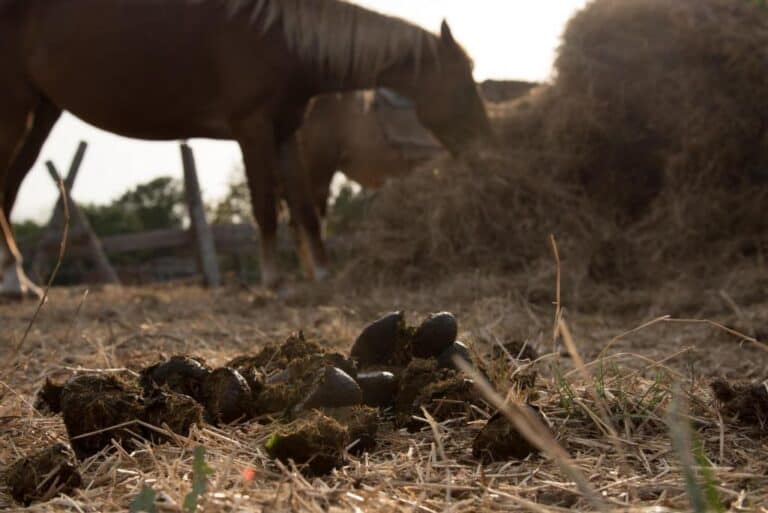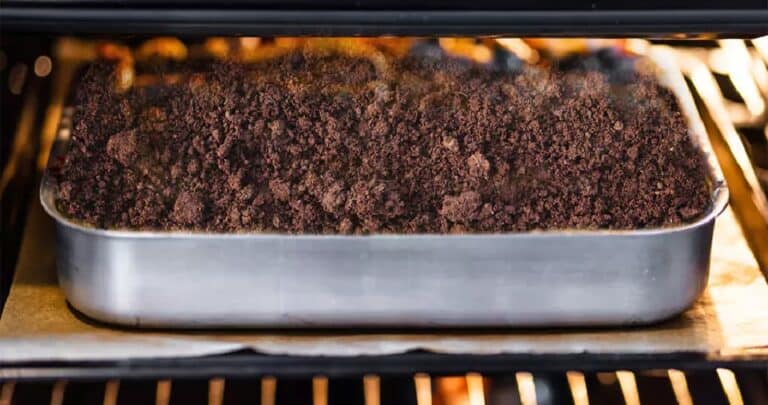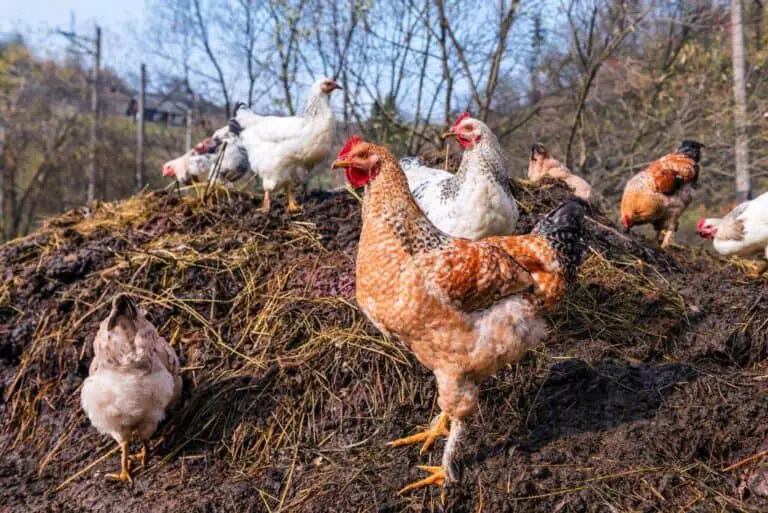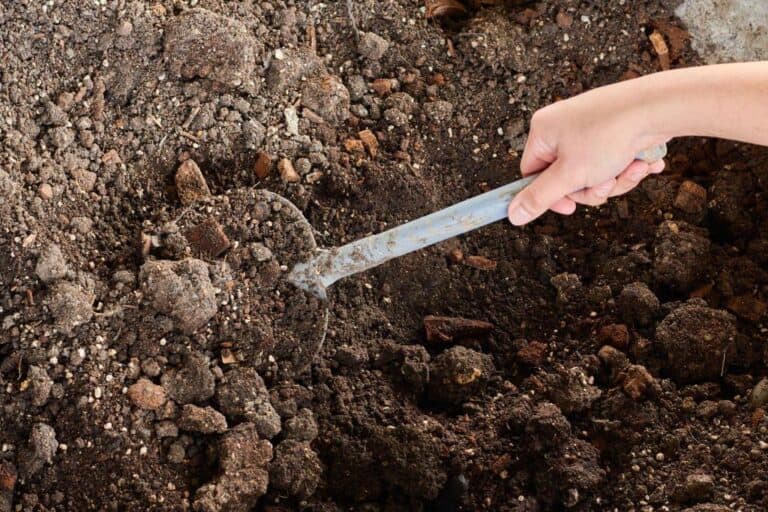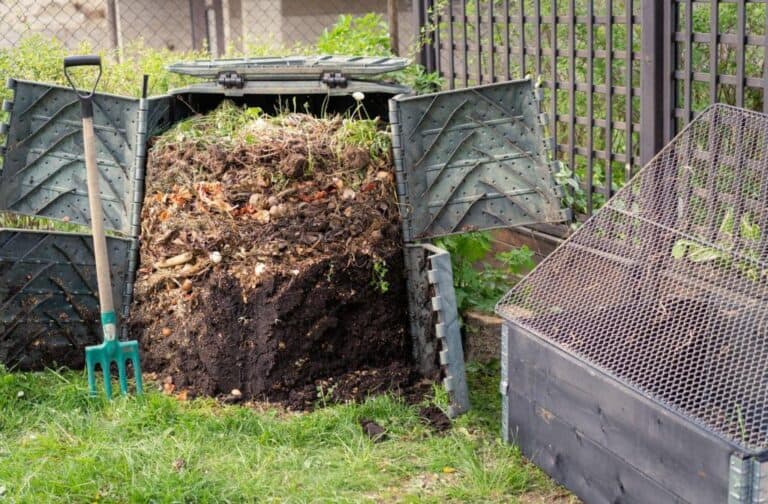Can I Use Aged Dry Horse Manure in My Garden?
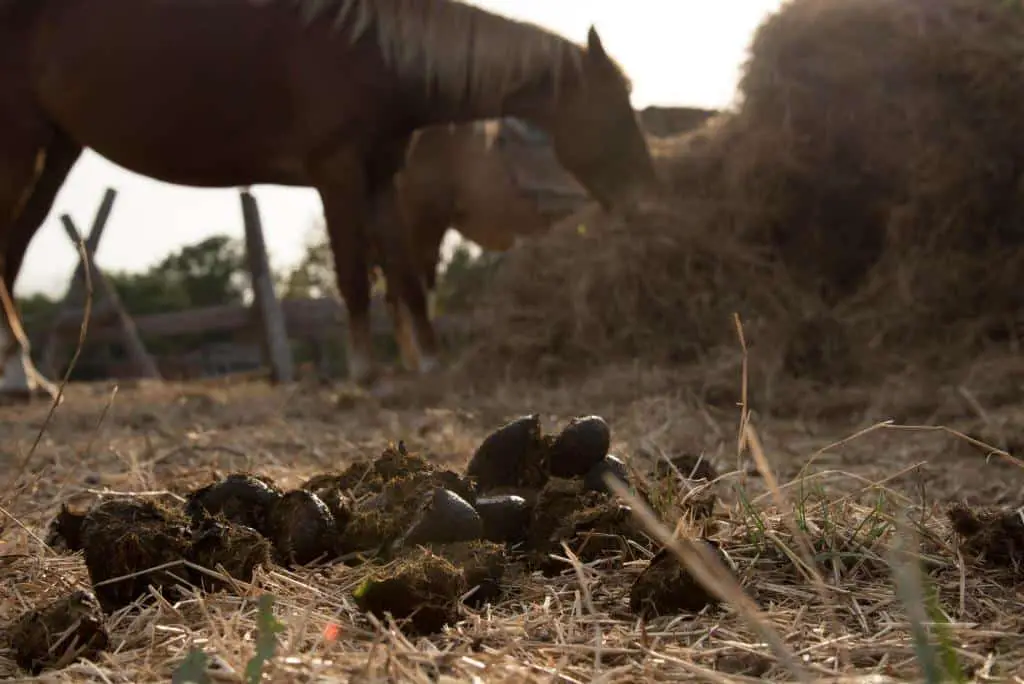
When it comes to gardening, many of us strive to create a healthy and thriving environment for our plants. This includes choosing the right fertilizer. They will nourish our garden beds without harming the soil or the surrounding ecosystem.
Organic fertilizers have gained popularity in recent years as a more sustainable and environmentally friendly choice. They use natural nutrients as an alternative to synthetic chemicals. Synthetic chemicals can harm both our plants and the planet.
One such organic fertilizer option that often piques curiosity is old, dry horse manure. They are rich in key nutrients like nitrogen, phosphorus, and potassium. Horse manure has been used for centuries to enhance soil fertility. Before you wheel your wheelbarrow to your garden beds and start burying this natural treasure, there are factors worth considering.
So, Can I Use Aged Dry Horse Manure in My Garden? You can use aged, dry horse manure as a useful fertilizer in your garden. You can safely use horse manure anywhere in the garden if it has aged for a year, three years, or longer.
If you’ve ever wondered whether recycling those packages left behind by equine pals might be useful in growing luscious vegetables or vibrant flowers, then read on!
We’ll explore using old, dry horse manure as a fertilizer for your beloved garden plants. We’ll equip you with tips on how to safely incorporate it into your gardening practices. Along the way, you can reap its potential benefits.
What is Aged Dry Horse Manure?
Aged dry horse manure is a valuable organic fertilizer that results from the decomposition of horse waste over time. This natural process breaks down the manure into nutrient-rich compost. This enhances its efficacy as a soil conditioner. Imagine a transformative journey where fresh horse droppings evolve into a nutrient powerhouse for your garden.
Key Characteristics of Aged Dry Horse Manure:
- Texture: Aged dry horse manure boasts a crumbly texture, making it easy to handle and incorporate into the soil.
- Nutrient Content: The soil is packed with essential nutrients like nitrogen, phosphorus, and potassium. This provides a balanced diet for plants.
- Odor: Unlike fresh manure, the aged version has a mild, earthy scent, making it more pleasant to work with.
Can I Use Aged Dry Horse Manure in My Garden?
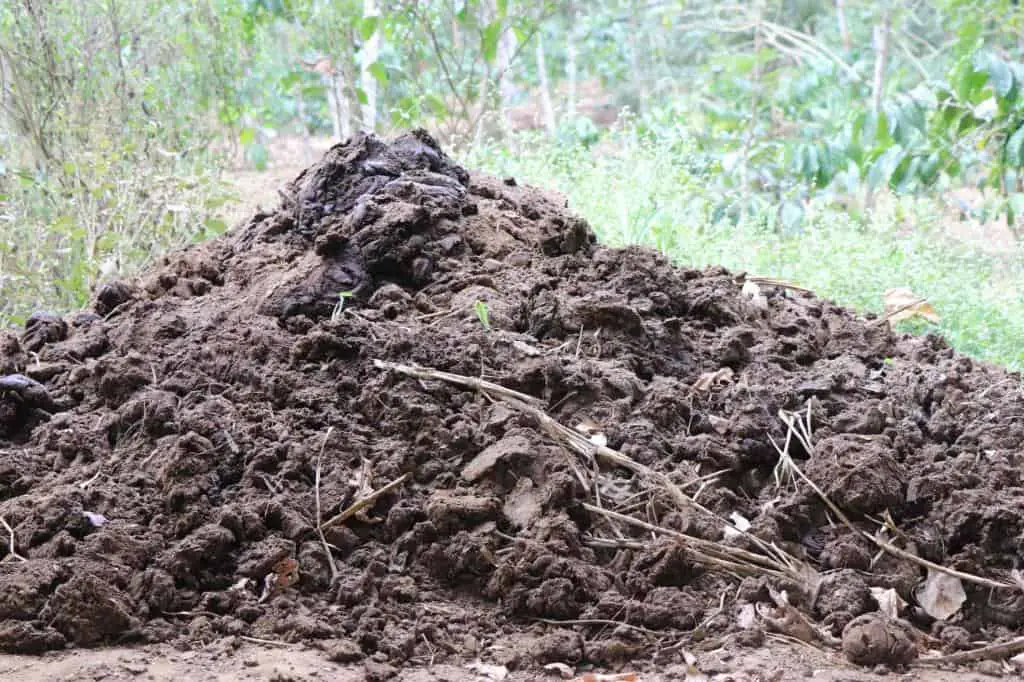
Yes, aged dry horse manure can be used in the garden as a beneficial fertilizer. According to gardening experts, horse manure that has aged for more than a year, or even three plus years, is safe to use anywhere in the garden.
Well-aged, thoroughly dried manure can be worked into the soil without running the risk of burning the plants’ roots. It’s important to note that aged manure may still be fairly coarse. But it can be used as a fertilizer and worked into the soil without any special treatment.
Composted horse manure can also be used in the garden at any time of the year by tossing it over the garden area and working it into the soil. Therefore, using aged dry horse manure in the garden can provide a nutrient-rich boost to the soil, benefiting various plants and crops.
Benefits of Using Old Dry Horse Manure
Old, dry horse manure can be an excellent addition to your garden for several reasons. Firstly, it is a rich source of nutrients that plants need to thrive. Horse manure contains nitrogen, phosphorus, and potassium. These are essential macronutrients that are vital for healthy plant growth.
Nitrogen promotes leafy green growth. Phosphorus supports root development and flower production. Potassium helps with overall plant health and disease resistance.
In addition to providing essential nutrients, old dry horse manure also improves the soil structure. When incorporated into the soil, it helps loosen compacted areas and improves drainage in heavy clay soils. This can prevent waterlogged conditions that may lead to root rot or other fungal diseases in plants.
Furthermore, horse manure adds organic matter to the soil, enhancing its fertility over time. Microorganisms break down the organic material present in horse manure. They slowly, but steadily, release additional nutrients into the soil. This gradual nutrient release provides a sustainable source of nourishment for your garden plants throughout their growing season.
One advantage of using old dry horse manure rather than commercial fertilizers is its affordability. If you have access to a stable nearby or know someone who keeps horses, chances are you can acquire this organic fertilizer free of charge or at minimal cost compared to purchasing expensive bagged fertilizers from gardening stores.
How do I make Aged Dry Horse Manure?
Creating aged dry horse manure involves a simple yet effective process that harnesses the power of nature. Follow these steps to turn horse waste into a nutrient-rich soil conditioner for your garden.
1. Collection: Begin by gathering fresh horse manure from a reliable source. Ensure that it’s free of contaminants like straw or wood shavings, which may slow down the decomposition process.
2. Pile Formation: Create a compost pile by layering the manure with other organic materials like straw, leaves, or grass clippings. This layering promotes aeration and helps balance the carbon-to-nitrogen ratio.
3. Turning the Pile: Regularly turn the compost pile every few weeks using a pitchfork or shovel. This helps distribute oxygen, encouraging the growth of beneficial microbes that break down the manure.
4. Waiting Period: Allow the compost pile to age for several months, typically 6 to 12 months. During this time, microbial activity transforms the fresh manure into a crumbly, dark, and nutrient-rich substance.
| Ingredients | Proportion |
| Fresh horse manure | 60% |
| Straw/leaves/grass | 40% |
Risks Associated with Using Old Dry Horse Manure
When it comes to using old, dry horse manure in your garden, there are a few risks that you need to be aware of. One of the most important considerations is the need for proper composting or aging before use.
Fresh horse manure contains high levels of ammonia and can burn plants if it is not properly decomposed. So you cannot just use fresh horse manure in your garden. It’s crucial to let the manure sit and break down for at least six months to a year before using it as fertilizer.
Another concern is the potential presence of weed seeds in untreated horse manure. Horses often consume hay or grasses that may contain persistent weed seeds, which can germinate once spread in your garden. To avoid this issue, ensure that the horse manure has gone through proper composting. Make sure it has also undergone heat treatment processes that destroy seeds.
Aside from weed seeds, old dry horse manure may also harbor pathogens such as E.coli and Salmonella if not properly composted at high temperatures. These microorganisms can pose a risk not only to your plants but also to your health if you come into contact with them during gardening activities.
Additionally, untreated horse manure might contain chemicals like medication residues used on horses or pesticides found in their feed or grazing areas. While these levels are typically low, it’s essential to know what substances have been used around the horses before considering using their manure for gardening purposes.
Due to its high nitrogen content, old dry horse manure should be applied carefully and tested for pH levels before adding it directly to plants. This helps prevent excessive nitrogen uptake by plants, which can affect their growth negatively.
To ensure safe use of old dry horse manure in your garden and minimize any associated risks mentioned above, consider mixing it with other organic materials like straw or leaves during the composting process. You can also purchase an aged or composted variety. Monitor plant growth closely while gradually increasing application amounts over time.
Incorporating Old Dry Horse Manure Into Your Garden
It is crucial to properly prepare and compost old dry horse manure before adding it to your soil if you plan to use it in your garden. One method is by creating old, hot piles outdoors.
Start by gathering a substantial amount of the manure and forming a pile that is at least three feet high and three feet wide. Make sure to turn the pile regularly every couple of weeks to provide oxygen for decomposition.
You can also compost old horse manure indoors if you don’t have enough outdoor space or want a more controlled environment. Use a large container with drainage holes, such as a plastic bin or wooden box, filled with layers of horse manure, alternating with other organic waste materials like leaves, food scraps, or grass clippings. Keep the mixture moist but not too wet, and turn it every few weeks to facilitate decomposition.
Below are simple step-by-step instructions on how to create hot piles outdoors or compost indoors. You’ll also learn how to safely mix it into existing beds or containers without harming plants.
Steps to Incorporate Aged Horse Manure
1. Selecting the Right Manure
Opt for well-aged horse manure, usually decomposed for at least six months. This ensures that the nutrients are readily available for plants and that any potential odors have dissipated.
2. Preparing Your Garden Bed
Before application, prepare your garden bed by removing debris, weeds, and rocks. This provides a clean slate for the manure and allows for better soil contact.
3. Spreading the Manure
Spread the aged horse manure evenly across the garden bed. Aim for a layer about 2-4 inches deep. This application depth ensures a balanced nutrient distribution without overwhelming the plants.
4. Incorporating the Manure
Gently incorporate the manure into the soil using a rake or garden fork. This helps blend the nutrients with the existing soil, promoting a harmonious environment for plant roots.
5. Watering and Monitoring
After incorporating the manure, water the garden bed thoroughly. Regularly monitor your plants and soil to ensure they are responding positively. Adjust the frequency of application based on the specific needs of your garden.
Precautions & Additional Tips
When using old, dry horse manure in your garden, it is important to take some precautions to ensure you are handling it safely and effectively.
One of the first things to keep in mind is wearing gloves when handling the manure. While aged horse manure may not be as potent as fresh manure, there can still be traces of bacteria or parasites that could potentially cause harm. Wearing gloves will help protect your hands from any potential pathogens.
Additionally, after working with the manure, it’s crucial to wash your hands thoroughly with soap and water. This simple step can significantly reduce the risk of any potential contamination.
Another helpful tip is to test your soil for nutrient deficiencies before adding any fertilizer. This includes horse manure. This will allow you to determine what nutrients your soil lacks and how much additional fertilizer you need to add. By doing this, you can avoid over-fertilizing and ensure proper nutrient balance in your garden.
If you’re uncertain about using old dry horse manure or don’t have access to properly aged manure, there are alternative organic fertilizers available. These alternatives can provide similar benefits without posing any risks associated with using untreated animal waste.
By following these precautions and considering these tips, you can enjoy the numerous benefits of incorporating old, dry horse manure into your gardening practices. This will ensure a safe and healthy environment for both yourself and your plants.
Conclusion
In conclusion, using old dry horse manure in your garden can provide numerous benefits for your plants. It is a rich source of organic matter and essential nutrients that can enhance soil fertility and promote healthy plant growth. The slow-release nature of the nutrients in horse manure makes it an excellent long-term fertilizer option.
However, it’s crucial to be aware of the potential risks associated with using old, dry horse manure. Contamination from herbicides or other chemicals used on pastures can pose a threat to your plants. To mitigate this risk, consider conducting a small-scale test. Add a small amount of manure to one section of your garden first before using it broadly.
Furthermore, it’s essential to practice proper hygiene when handling and incorporating horse manure into your garden. Always wear gloves when working with manure. Afterward, wash your hands thoroughly to prevent bacterial contamination.
Ultimately, old dry horse manure can be a valuable addition to your garden’s nutrient supply. However, it’s important to take the necessary precautions and ensure its safety for both you and your plants.
Experimenting with different organic options is also encouraged as part of sustainable gardening practices. So go ahead—give old dry horse manure a try if you have access! Your plants will thank you for the added boost they receive from this natural fertilizer.

